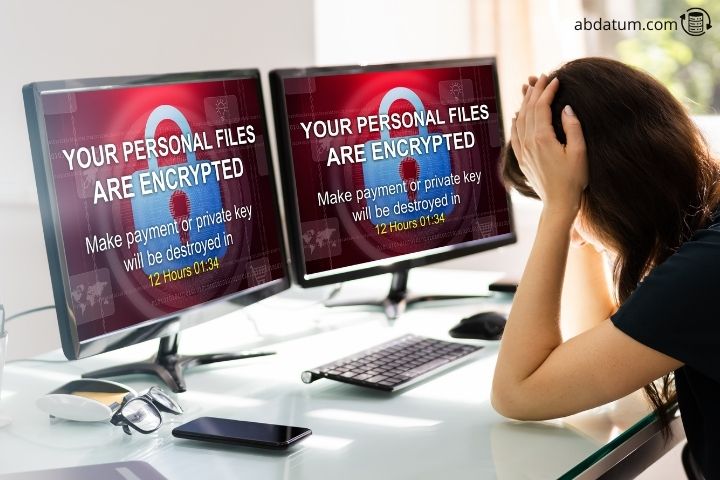How to protect yourself from cyber attacks

In recent years the number of devices connected to the network has increased exponentially. Nowadays we have everything connected to the internet: computers, televisions, mobile phones, even entire houses through home automation technology in smart homes.
This has made our lives easier and has brought us many advantages. However, it is not all gold that glitters. This has made malicious hackers more interested in taking action as they can exploit vulnerabilities to break into people's devices and extract compromised information.
This is the reason why cybersecurity is an emerging field where there is more and more demand from companies. In this article I am going to reveal to you some tricks that you can use to protect yourself against cyber attacks and prevent them from stealing important information from you.
8 methods to protect yourself against cyber attacks
Below I explain eight actions you can take today to start better protecting yourself against hacker attacks.
They are easy to carry out and you do not need to have experience in cybersecurity. However, if you want to learn about cybersecurity and improve your protection you can read our article on how to learn cybersecurity .
Use a good antivirus to protect your devices
The first step to avoid any hacker attack is to protect your devices. An Antivirus is a very good tool as it will scan all files and also incoming connections to prevent any intrusion.
If you want standard protection you have free antivirus such as Avast either AVG . These will protect you against a good number of possible attacks.
However, if you want to avoid any cyberattack or want your children to use the computer safely then I recommend using Pandas. With Pandas, for a very economical cost you can have total protection of your devices. More information about Pandas antivirus .
Install a VPN to browse anonymously
A VPN (Virtual Private Network) is software that allows you to hide your IP address, browsing anonymously and preventing people from locating you. This increases your protection when using the network. You can read more in our article on how to hide your IP .
What the VPN does is act as an intermediary between your connection and the connection to the page you want to browse. So, in practice, it will be the VPN's IP address that appears and not yours.
There are several companies that offer this Virtual Private Network service. However, I always like to recommend the products that I have tried. In this case I recommend NordVPN.
They offer very affordable rates, and their customer service is very good so you can contact them directly with any questions you have.
Do not open suspicious emails
Many cyberattacks occur through what is known as phishing. Phishing is a technique that consists of tricking a user into entering confidential data such as the account number so that the attacker can have said data.
One way to carry out a phishing attack is by email. Many times they replicate colors and logos of brands like Amazon or your own bank, telling you that there has been an error with your account and that you have to log in to solve it.
Many email managers like Gmail have an artificial intelligence system that detects this type of email and sends them to spam. However, never believe an email that says you have to enter sensitive data.
Before taking any action, call your company or the store and make sure it is not a scam.
Avoid downloading files such as programs or movies
Another type of cyber attack consists of introducing malware to your device. Malware or malicious software is any program that can damage a computer or any other electronic device.
Malware can sneak into any other file. For this reason, downloading files such as music, movies or programs from an untrustworthy source is dangerous.
If you want to download files from the Internet from unreliable sites, we recommend having an Antivirus installed (as we have seen in the first section) so that it can check if the file has any dangerous software or if, on the contrary, it is free of viruses.
Do not use unknown external devices such as USBs or hard drives
Another way to inject viruses or carry out a cyber attack is through memory devices such as USBs or external hard drives. These external devices may contain some program that is activated when connected to a computer. Activation of said program could lead to infection of the computer.
To avoid these attacks, avoid connecting any external source to your computer that you do not know its origin.
Do not click on SMS links from a number you do not know
In the third section we have seen that one way to carry out a phishing attack is by using an email. Phishing can also be carried out through an SMS email, so do not open any link that comes from a text message of which you do not know who the sender is.
Do not use free WIFI in public places
A very common way to access a device is through a WIFI connection. Many hackers activate a free internet connection point in public places for people to connect and steal all their data.
One way to prevent these attacks is by not connecting to any public WIFI network. However, many times we must do it, for example, when we travel and we are at a train station or at the airport.
To be able to use public networks safely, it is best to use a VPN (seen in the second section). A VPN will allow us to browse anonymously and be able to connect without any danger to any WIFI point.
Update your programs and operating system
Malicious hackers widely use vulnerabilities in programs and operating systems to be able to carry out massive cyberattacks on all the people who use these programs. This is the reason why updates for software and operating systems are constantly coming out.
These updates are used to fix security issues and make improvements. For this reason, updating our programs is a very good way to protect yourself from cyber attacks.

